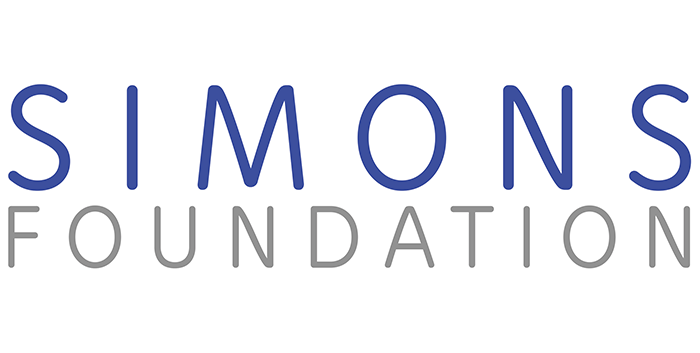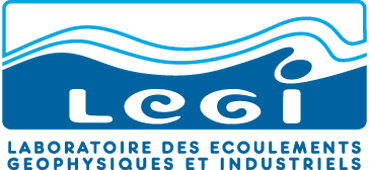Collaboration on wave turbulence supported by the Simons Foundation#

The Simons Foundation supports an international and interdisciplinary collaboration on wave turbulence directed by Prof. Jalal Shatah from New York University that involves 20 PIs from the US, France and Italy and including N. Mordant and P. Augier from LEGI. This funding runs until 2026. The funding supports two post-doctoral positions in LEGI for 2- and 3-years resp. The scientific program of the collaboration is to investigate various aspects of wave turbulence either from the mathematical or the physical point of view. The centerpiece of the investigations in the collaboration is the Weak Turbulence Theory (WTT), which aims at describing the temporal evolution of the statistical properties [Nazarenko, 2011]. The application of WTT to the case of internal gravity waves remains the object of investigations either at the theoretical and experimental/numerical level. Furthermore it is well known that in realistic cases of stratified turbulence, weak wave turbulence is only part of the problem. Wave coexist with vortices and all these degrees of freedom are coupled by nonlinearity that can be weak or strong. One major open question is the interplay of such weak wave turbulence and strong turbulence that can develop either at very large scale in which case it is strongly anisotropic or at the smallest scales (possibly isotropic). Our laboratory (Laboratoire des Ecoulements Géophysiques et Industriels, LEGI) is a privileged place for such investigations of stratified turbulence due to a long-standing expertise in the field. On the experimental point of view, LEGI host a unique facility, the CORIOLIS facility, dedicated to the experimental investigations of geophysical flows. It consists in a 13m diameter, 1m-deep rotating tank equipped with a specific hydraulic scheme to generate arbitrary salt stratification profiles. Many sorts of measurements can be implemented such as PIV (Particle Image Velocimetry), ultrasonic velocimetry or density profiles. Numerical simulations will also be performed using various numerical codes such as the open source solver Fluidsim.
One post-doc position will be focused on experimental investigations and the other position on numerical aspects. One of the positions can start as soon as possible (within the administrative constraints). The second position should start after September 1st 2023. Each position is at least 2 years and one position can be extended to 3 years (on condition that it starts early enough). The project is hosted on the campus of Université Grenoble Alpes, on the premises of LEGI which is a fluid mechanics laboratory will very diverse research interests and with a strong experimental component.
Important
Applicants must contact Nicolas Mordant (nicolas.mordant@univ-grenoble-alpes.fr) or Pierre Augier (pierre.augier@univ-grenoble-alpes.fr) for further information and application.
